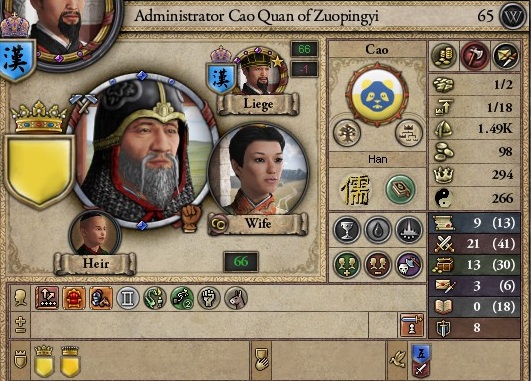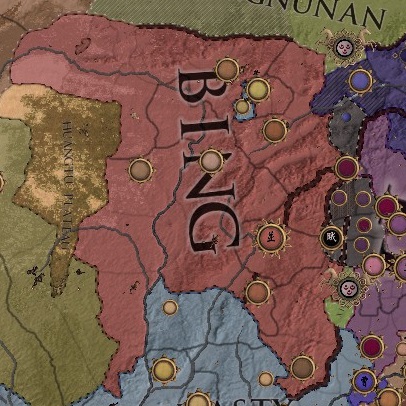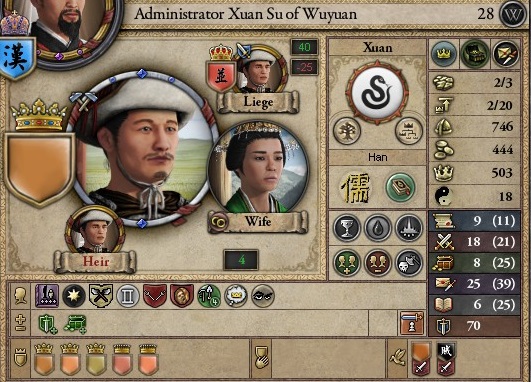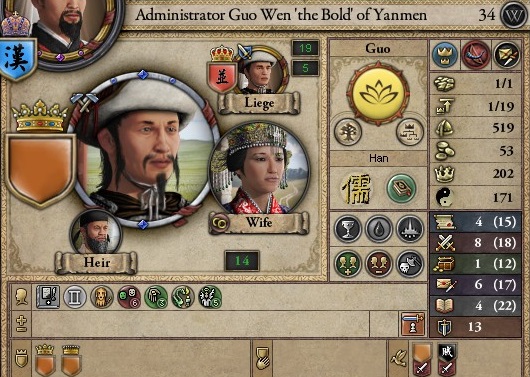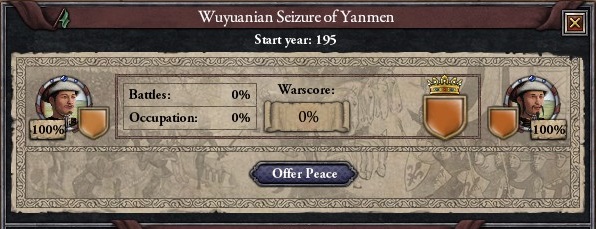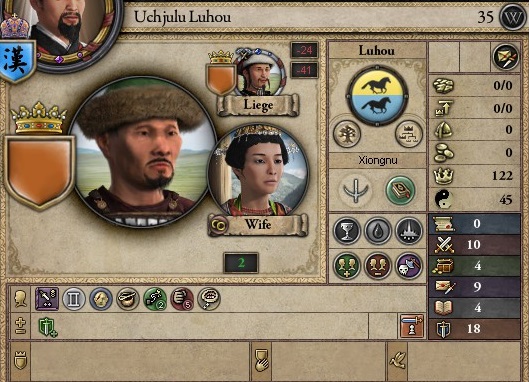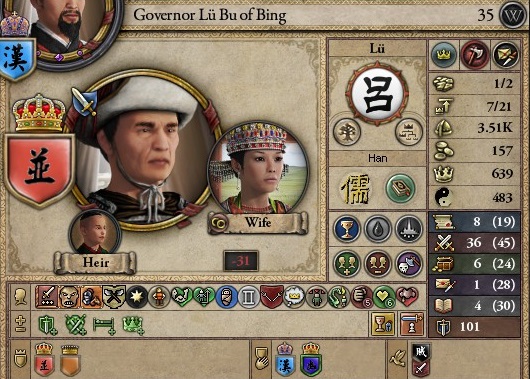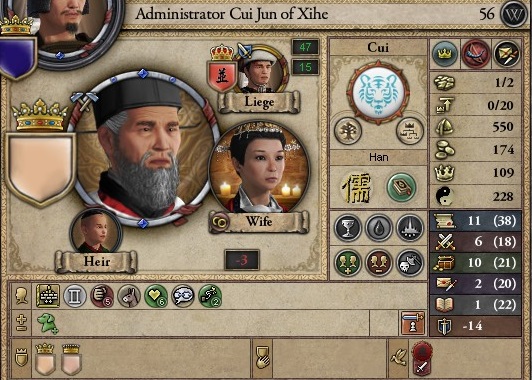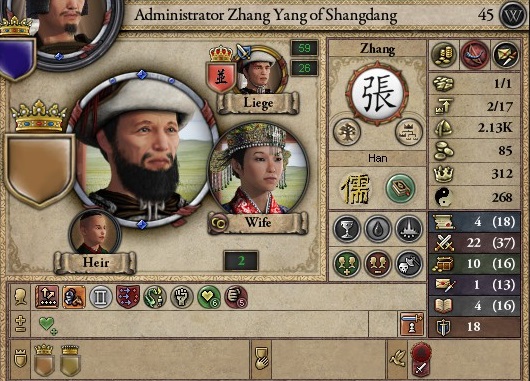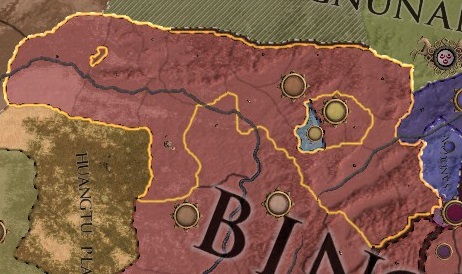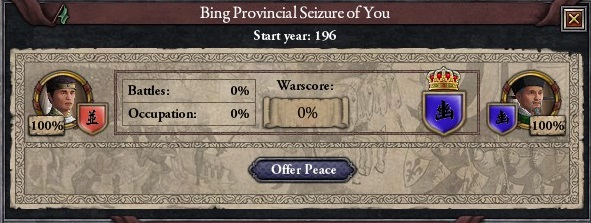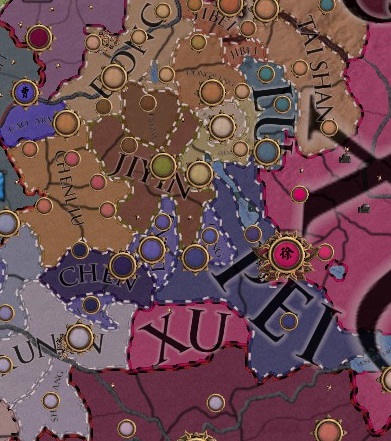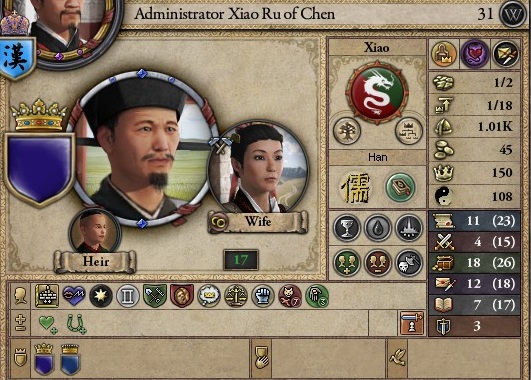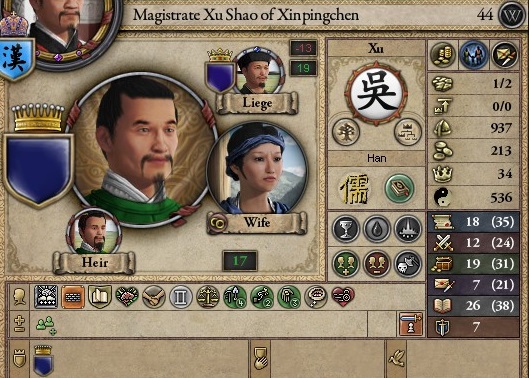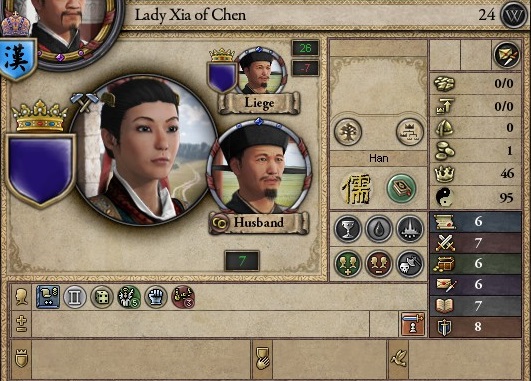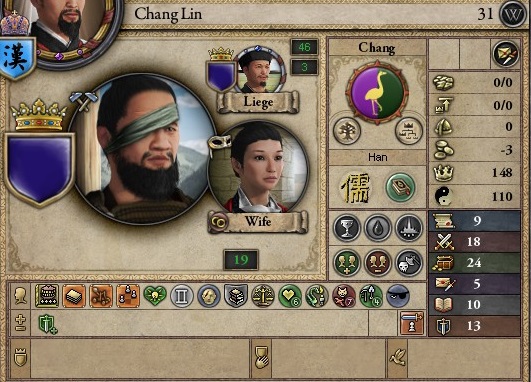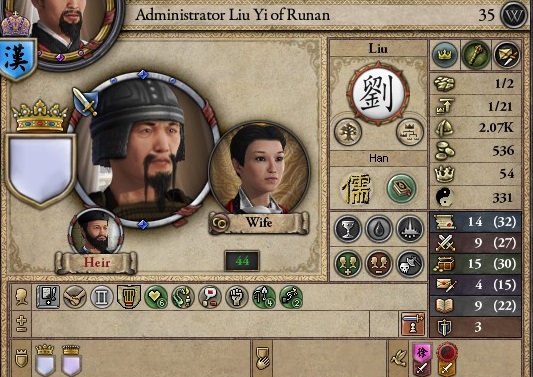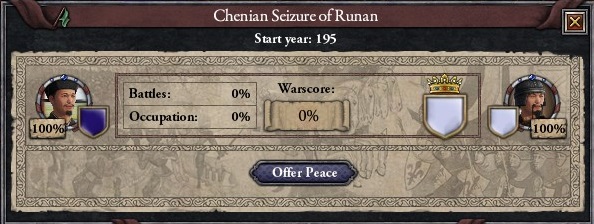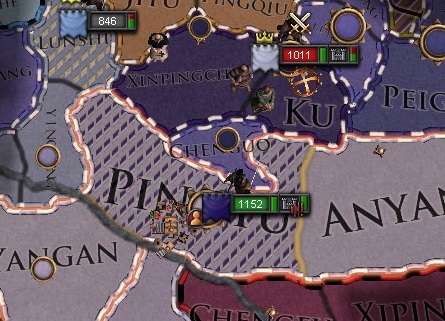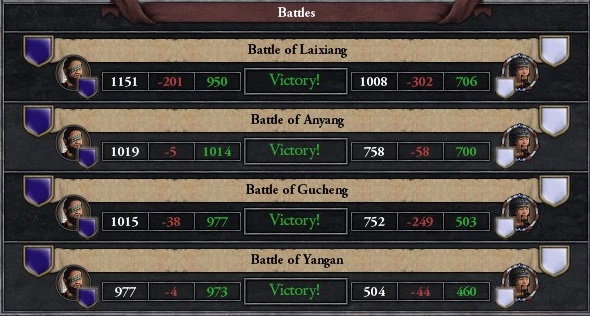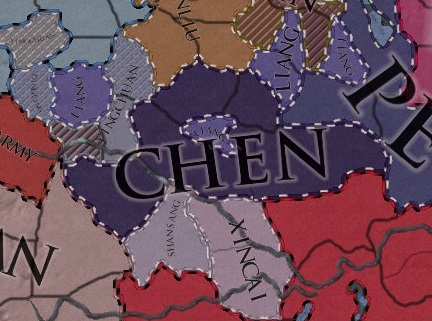192-193: THE YANG EXPANSION
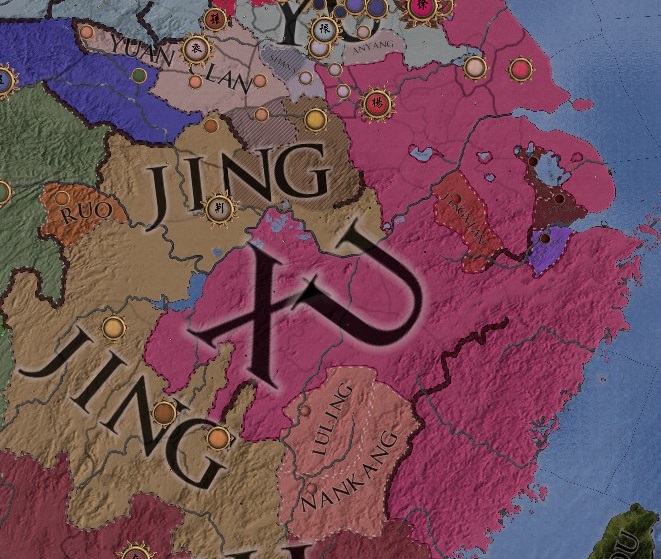
When the dust settled, everyone agreed that the annexation of Changsha had been a smooth affair. Su Dai was happy to still be in charge of the commandery and had no issue obeying Chen Wen. Yang Weili had proven to be Cheng Wen’s key commander and right hand man, cementing his place at his lord’s side. Even Bu Baoxun, the general who had ran a mock of the Yang armies, had finally agreed that serving Chen Wen was a good opportunity for the officers currently serving Su Dai. Everyone was happy.
Chen Wen was quick to invite his new subordinate to Hefei to celebrate their new relationship. Su Dai quickly made his way to the provincial capital, where he was welcomed to a large feast and honored as an esteemed guest by Chen Wen. At first amazed by the length his new liege would go to make him welcome, he quickly found himself a bit put off by Chen Wen’s more aggressive personality. He acted far more commandingly than what Su Dai had expected, at least from Yang Weili’s description of the man. Still, it wasn’t something that the mild Su Dai had a problem dealing with, quickly easing himself into his new position as a subordinate.

Soon after the banquet, Su Dai found himself welcomed to Chen Wen’s court, where Chen Wen publicly welcomed him among his vassals. The formalities dealt with, Cheng Wen asked everyone their thought on the current situation. Tao Qian was dead and his son Tao Shang now ruled Xu. Liu Biao was still waging war with Yuan Shu. He wanted to know what should be their next move. The old Lu Jun was the first to step forward, saying his mind as he always did.
“With Changsha rallied to us, prosperity will come to Yang. If we stay strong and silent, we will prosper as others suffer, and soon wealth will never be a problem for us. My liege, why risk everything by inviting chaos upon our land? Our sight should on our home, not on futile ambitions.”

This wasn’t a surprising position from the old man, who still selfishly refused to see the province expand. Chen Wen had to admit that Lu Jun made some good points. After all, why risk it all? But he didn’t want to take a decision without hearing Yang Weili’s opinion. He turned to his Commandant and friend, asking the strategist what he believed they should do. Yang Weili was actually yawning when everyone turned to him, leaving him quite embarrassed. Never the less, he quickly rose to his feet and presented his humble opinion. Now, what Lu Jun had said sounded nice. The part about never worrying about wealth definitively had his support. But he pointed out that as long as they were forced to bow to Tao Shang, most of that wealth would never truly be theirs.
No, they needed to break free from Xu Province. Xu Province had probably realized that too. At the time they were speaking, Mi Fang and Liu Siyuan were leading troops against Anyang after a successful campaign to take Chengfu. Tao Shang was expanding his power, so they needed to do the same. At this, Lu Jun balked, calling Yang Weili insane for suggesting such course of action. Surprisingly, it wasn’t Chen Wen who came to support Yang Weili, but Su Dai. The new vassal was all too happy to be useful to his new lord, and so told him that Liu Biao was actually weakened due to the efforts of General Sun Jian. Jing Province was weak, and if a campaign was their solution then he would gladly have Bu Baoxun lead troops beside Chen Wen.

Chen Wen, now completely convinced, announced that he would lead the troops personally. This made Yang Weili flinch. He knew for a fact that Chen Wen had never led any soldier in battle and had no knowledge of military affairs. But he saw the joy on his lord’s face and decided that it would be easier to assist him than to change his mind. Chen Wen ordered the troops to assemble in Changsha Commandery, where Bu Baoxun received orders to meet with them. The inspector decided to leave Lu Jun in charge of Hefei and Yang Province in his absence. While the old man had disagreed with this campaign, he gladly accepted this appointment and promised to make the province prosper in Chen Wen’s absence. While Lu Jun would fail to uphold this promise, he was at least able to keep Yang Province united in the absence of its inspector. In March 192, Chen Wen officially announced that he was invading Jing Province to “expand the peace and order of Yang Province to its neighbour”.
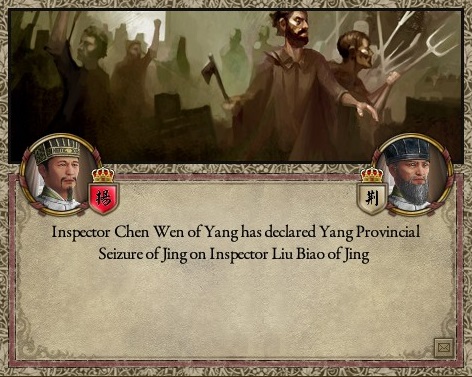
Once they reached Changsha, Su Dai welcomed Chen Wen and Yang Weili in his home. He wanted to show his loyalty to his new lord by welcoming him like he had. However, while Chen Wen was thankful, he was also mightily annoyed. Now was not the time to feast! Yang Weili did his best to calm his lord and then went to meet with Bu Baoxun. The general knew the region far better than they did, so he was appointed head of the vanguard. Discussions were tense as they had been fighting only a few months ago, but they were none the less able to discuss strategy together. Bu Baoxun was worried when he realized that it would be Chen Wen and not Yang Weili who would lead their troops, but Yang Weili did his best to reassure him. “Our lord lead by his presence alone, not by example” he said. Bu Baoxun wasn’t convinced, but Su Dai trusted Chen Wen and he trusted Su Dai’s judgement.

The army left and entered Jing Province by late June. Liu Biao, who had learned of their invasion through his spies, had his troops recalled from their war against Yuan Shu, who himself was pinned down by his war with Zhang Lu and the celestial masters and the revolt of general Sun Jian. This meant that Liu Biao could focus exclusively on these new invaders. There was one problem though: Liu Biao had less than a thousand men left after his defeats at Sun Jian’s hand. Meanwhile, Chen Wen was entering his territories with almost four thousands loyal soldiers who had just come out of a successful war. So for the time being, Liu Biao ordered his brothers-in-law to stay away from Chen Wen and recruit new troops.

This left the field open for Yang Weili and Bu Baoxun to besiege as much cities as they pleased. Chen Wen wanted these sieges to be fast and quick, a success on all fronts. Bu Baoxun tried to explain that sieges take time, that you had to be resilient in this kind of warfare. Chen Wen replied that a quick siege would be better for everyone, as the people of the city would be freed without having to suffer. Yang Weili tried to tell Bu Baoxun that maybe they could bribe the city garrison or have a deal with the local official to speed things up. Not taking the hint, the general continued to argue that NO, you win a siege by waiting until the other guy surrendered! It didn’t take long for the stubborn general to get on Chen Wen’s nerves.
Within a few weeks, Yang Weili was the one relaying things between the two, as the Inspector of Yang Province now refused to talk with Bu Baoxun. This became such a problem that Bu Baoxun ended up asking Yang Weili to be allowed to go off his own way. When Yang Weili told Chen Wen, the latter was incensed. Bu Baoxun kept criticizing him and now he wanted an autonomous command? Chen Wen refused. Undeterred, Bu Baoxun asked again, and again, and again. By October, Chen Wen finally had enough and gave him the ok to venture off on his own.
A month later Bu Baoxun returned. Chen Wen was still angry at him, but it was a fact that he had taken a few towns in Chen Wen’s name. At the very least, this made Bu Baoxun deserving of a reward. So he welcomed back the general in his tent and offered him a great piece of art, which the general bluntly refused. Thankfully, Yang Weili was able to calm Chen Wen and convince him to listen to Bu Baoxun. The general, now allowed to speak, explained that he had returned because he had been spotted by Liu Biao’s army, which was now coming this way. Yang Weili, realizing that Bu Baoxun had given them an opportunity to finally face the enemy on the battlefield, was quick to insist that they needed to plan a strategy so they could be ready. Chen Wen trusted his Commandant to handle the matter, allowing Yang Weili and Bu Baoxun to plan the coming battle.
Said battle took place outside of Shaxian, a city that had just surrendered to the Yang forces. Yang Weili worked out a strategy to lure the enemy forces into a trap. Sure, Liu Biao’s brothers-in-law were decent commanders, but they would surely fall for the right bait. A trap was sprung, with the cavalry waiting in the wing, ready to swoop in to finish the job once ordered. When the smaller Jing army appeared at the horizon, the troops were all in position. Then Yang Weili got the news that Chen Wen was leading a charge against the enemy. Panicked, Yang Weili had to break formation and abandoned the whole plan to come to his rescue. Chen Wen attacked everyone he saw like a madman and had to be dragged out of the battlefield by Yang Weili’s men. As the strategist tended to his wounded lord, Bu Baoxun was able to keep control of the situation and destroy their enemies, ensuring that the battle would be a victory.

As 192 ended and 193 started, Lu Jun received news of this great victory and of the fact that their lord had been wounded in battle. He could only sigh in disapproval. Just another proof that this whole war was a mistake. He had tried to keep the province running, but it was beginning to be difficult with the war requiring so much resources. And then, in early January 193, he learned that there was an army camping outside the walls of Hefei. At first wondering how Chen Wen had returned so fast, Lu Jun quickly realized that it was in fact the army of Xu Province. At its head was Liu He, the Prince of Pengcheng and the Commandant of Xu Province.
The Commandant asked to be allowed in as a guest. Lu Jun agreed, although he was visibly nervous as he met the man. Where they here to attack? But Liu He told his fellow old man that he had nothing to fear. He was simply leading an expedition against some barbarians in Yang Province. Tao Shang had ordered them to submit and pay tribute. Since they refused, Liu He had been dispatched to go fight them. Lu Jun could only sigh. This expansion of Tao Shang’s power south was no going to make Chen Wen happy. It certainly didn’t make him happy. He welcomed the Prince of Pengcheng as a guest, a decision he would come to regret. During his stay, Liu He quickly took notice of the lack of troops around the provincial capital and the constant supply sent east. He had his men investigate the situation discretely while making excuses as to why he had to stay for just a few more days. Soon he learned what was happening: Chen Wen was invading Jing Province. This put Liu He on high alert, and soon enough he sent a messenger back to Tao Shang to warn him of this expansion.
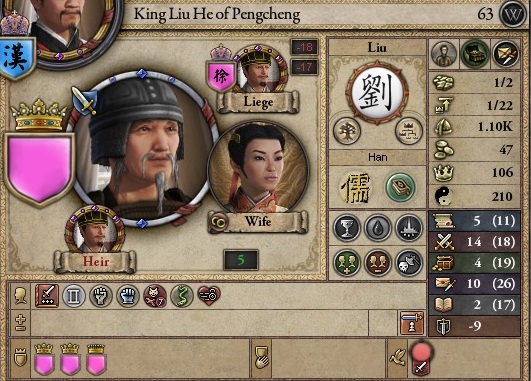
Meanwhile, Chen Wen and his generals were making their way toward the provincial capital. Bu Baoxun had been amply rewarded for his actions during the Battle of Shaxian and had made up with Chen Wen over their earlier dispute. By April, they had put the provincial capital under siege, with Liao Biao stuck inside of it. This time, Chen Wen was convinced that waiting would cause fewer casualties than charging head first against the walls of the city. So they set up their camp and began their siege.
Soon after setting up shop, Chen Wen was notified of a young man wishing enter his service. Intrigued, and always happy to offer a job to great men, he had the man brought to his command tent. The young man had a dozen men with him and a baby son. As he entered, he fell to his knees and thanked Chen Wen for the kindness of allowing him this audience. He presented himself as Hu Zan, a general of Qing Province unlawfully expulsed of his domain by Kong Rong. Searching for a new lord, he heard that Chen Wen was a kind master and wished to serve him.
Now, none of this was really true. Hu Zan’s flight from Qing Province was actually due to his failed revolt. After his defeat, he heard that Liu Biao was facing an invasion and wished to offer him his services, convinced that he could turn the war around. He also hoped that a desperate lord would be far more willing to take him in than a winning one. But by the time he arrived Liu Biao was under siege and seemed doomed to lose. Taken by surprise, Hu Zan quickly adapted to this new situation and offered his services to Chen Wen instead.
Chen Wen was all too happy to welcome this seemingly talented young man and welcomed him in his service, all while Hu Zan continued to thank him. Chen Wen also took pity on the man and his family, offering them a lot of gold to help improve their life. Now, if Hu Zan had first joined him due to circumstances, the sigh of wealth convinced him to devote himself to this man, especially when he realized that Chen Wen always rewarded his servants handsomely.
The inspector then summoned Yang Weili, asking him to find some command for the young man. Yang Weili simply put him in charge of supply without much thought before returning to the siege. Annoyed at what he saw as a lowly appointment, but undeterred, Hu Zan would come back a week later with a plan to reorganize supply in a more efficient way. Yang Weili, who had been too focused on the war to add this task to his workload, was impressed by Hu Zan. The strategist recommended Hu Zan for a promotion, and by the end of the siege the young man was actually helping Yang Weili supervise the whole operation.

By June, it became clear that Liu Biao was about to lose. It was clear to him to. His brothers-in-law came to him with a plan to salvage the situation, however. They could simply invite Chen Wen in and kill him. As Chen When only had two daughters, his death would leave a power vacuum that would force the Yang troops to return home. Liu Biao was hesitant to use such dishonorable tactic, but he told them that he would sleep on it. The next morning, he found out that most of his allies had deserted him, including his brothers-in-law. Now with no one to enact the plan, the Governor of Jing Province ordered the gate open and invited Chen Wen in, surrendering for real. He gave his governor’s seal to him, after which Chen Wen was paraded in the camps by his men. Victory was at hand! They had conquered Jing Province!

As the army of Yang made their way home, they were met with a messenger from Tao Shang. The Governor of Xu was all too happy that Chen Wen had conquered Jing Province for him, yes, but now it was time to give him the governor’s seal so he could appoint someone to rule Jing in his name, like Chen Wen was doing in Yang. Chen Wen perceived this as an insult. Men of Yang had died to win this war, to ensure that Jing could be used for the betterment of Yang Province. And now he was supposed to give it all to someone who didn’t deserve it? No, he would not waste the sacrifice of his men. Chen Wen sent the messenger packing, after which he asked his generals for advices.
Hu Zan was the first to step forward, as he was making a genuine effort to become indispensable to his new lord. He told Chen Wen that they should not disband the army once they reached Hefei, a suggestion Yang Weili quickly agreed with. Tensions with Tao Shang were at an all-time high, and so each side began to prepare for the worst. But as it would turn out, it wasn’t the invasion of Jing Province that would cause the inevitable clash between Chen Wen and Tao Shang. Not, it was something entirely unrelated, the actions of a proud scion of the Han.
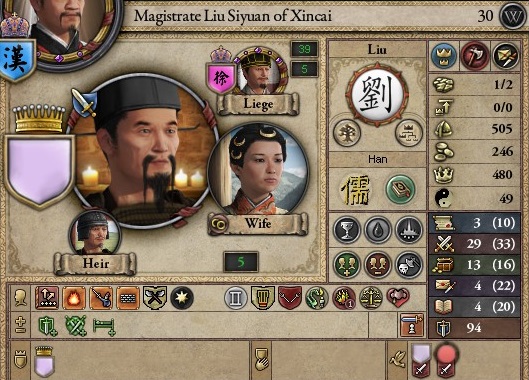
_____________________
PS: Liu Siyuan's chapter will be the next one.
Attachments
- 2
- 1





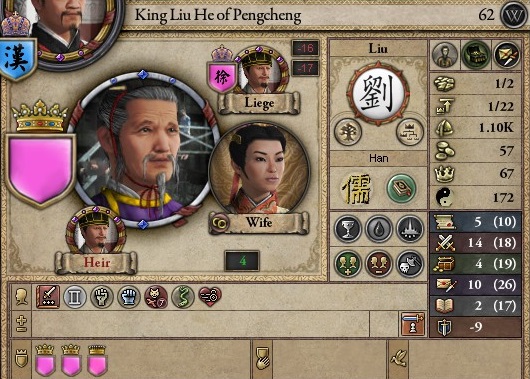
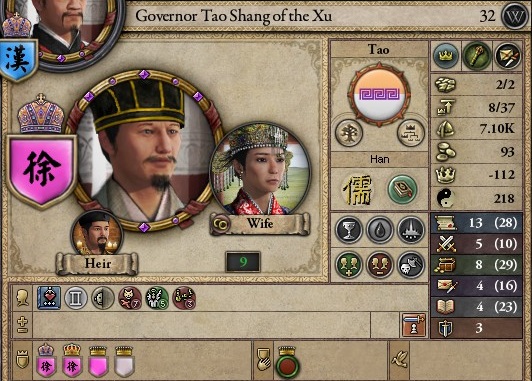
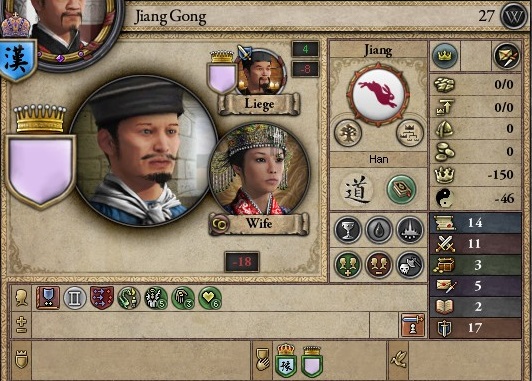
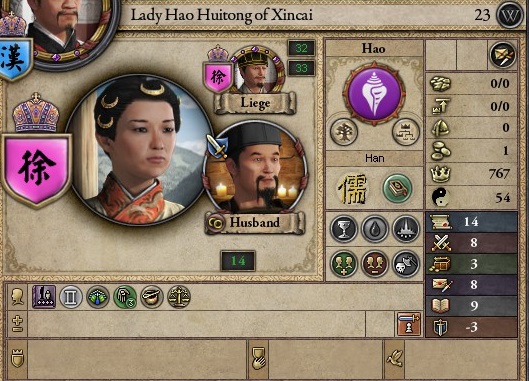

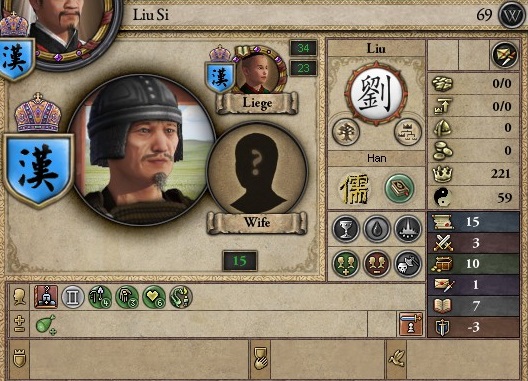
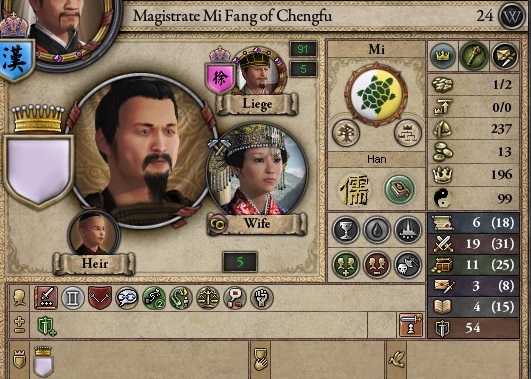

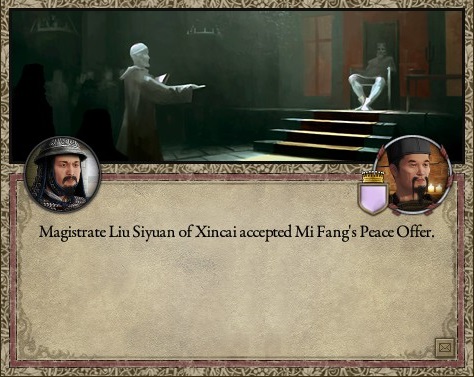
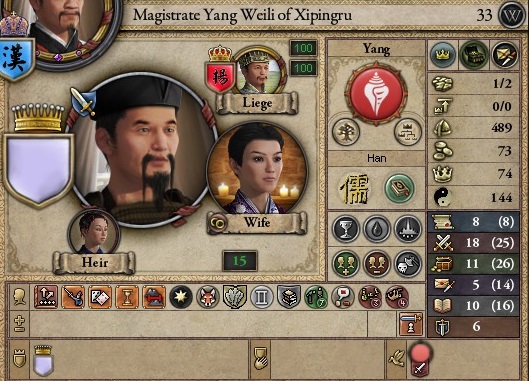
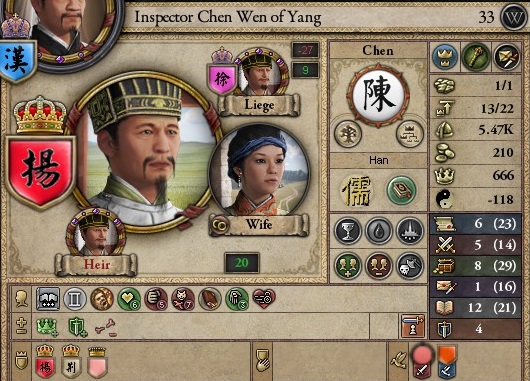

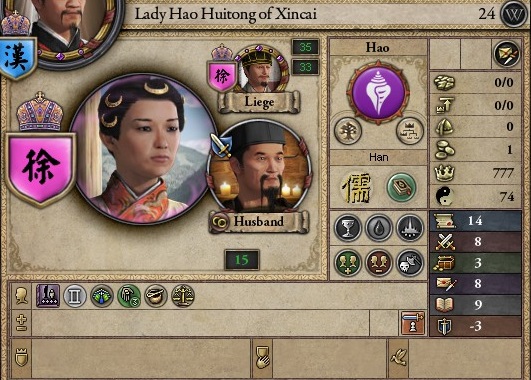
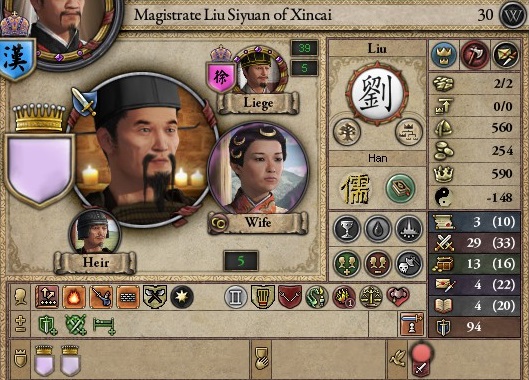















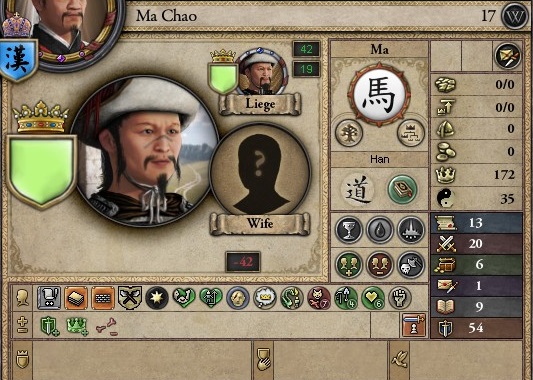


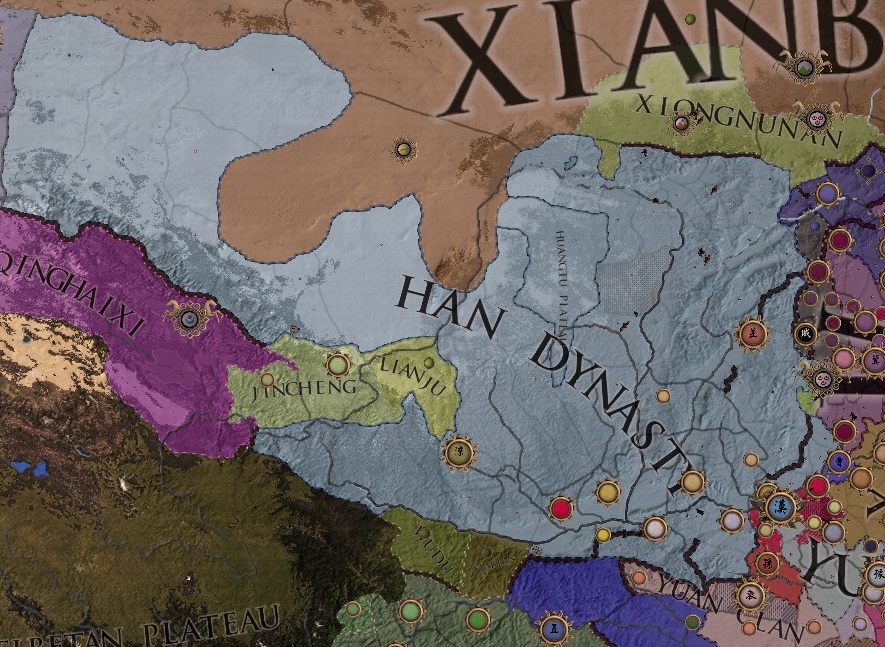






















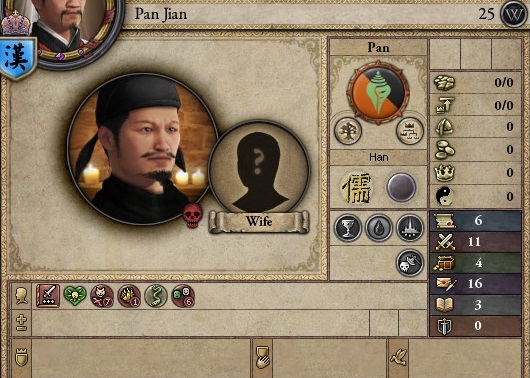

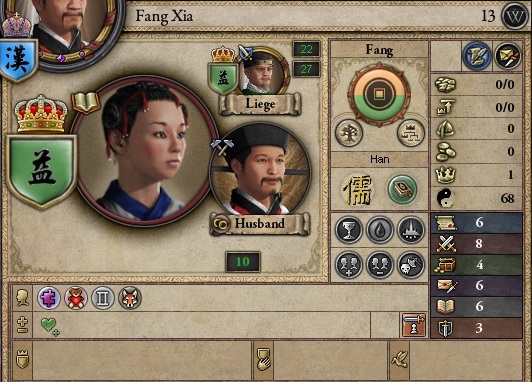






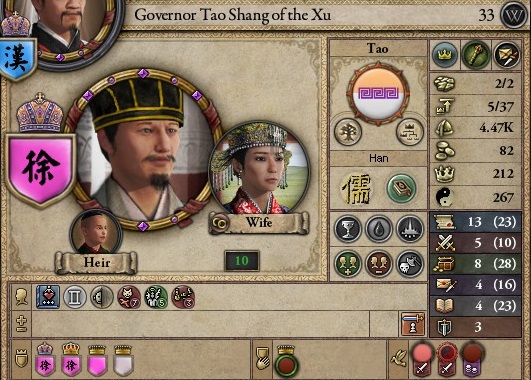



























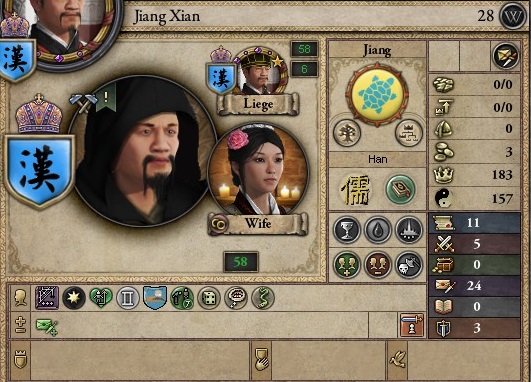











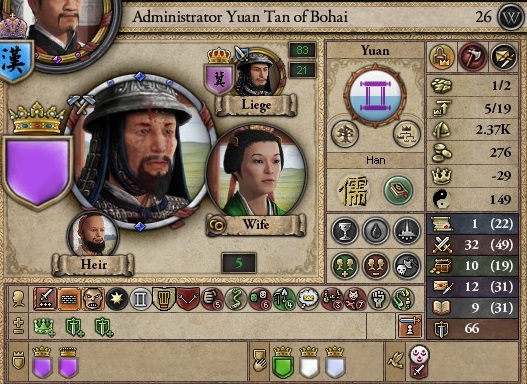


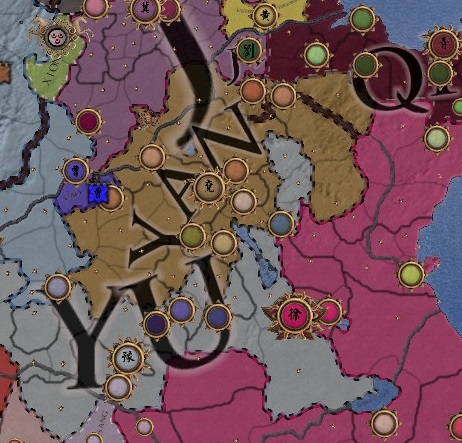
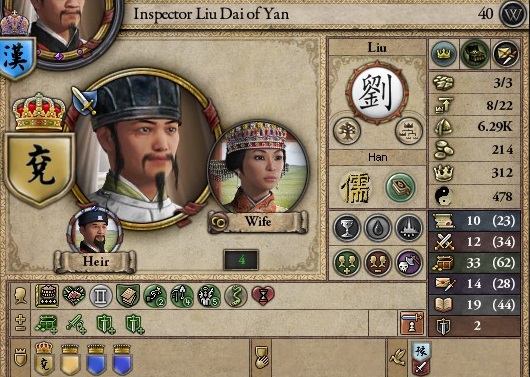
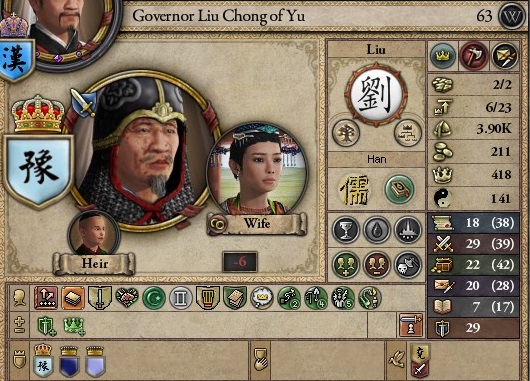
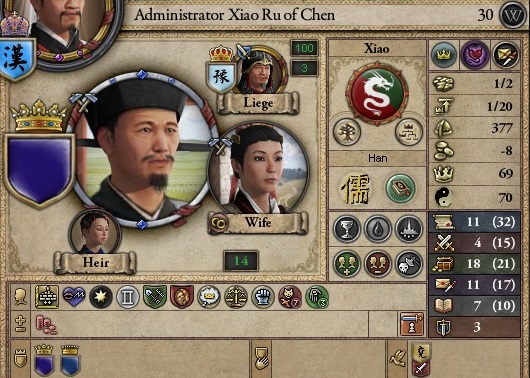
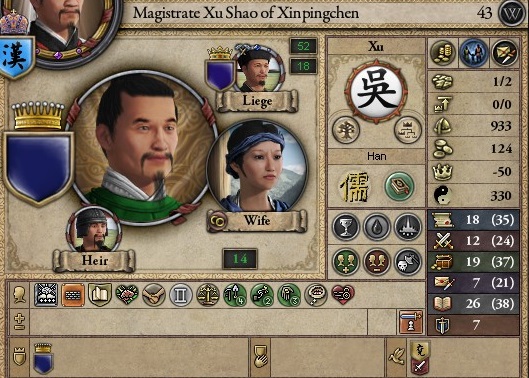



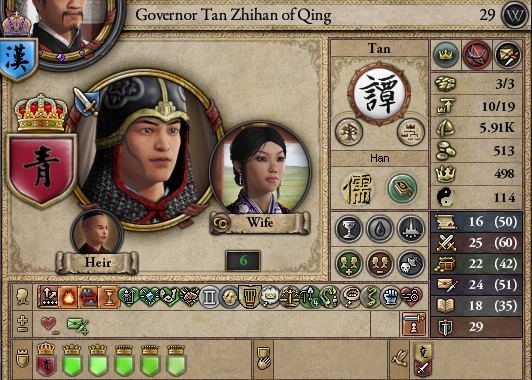
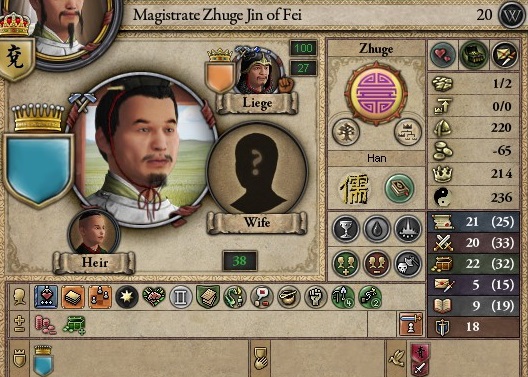
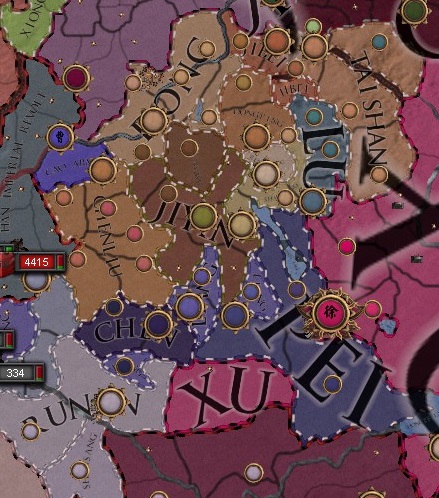
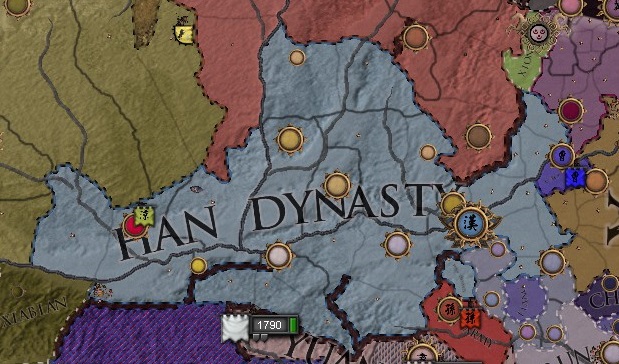

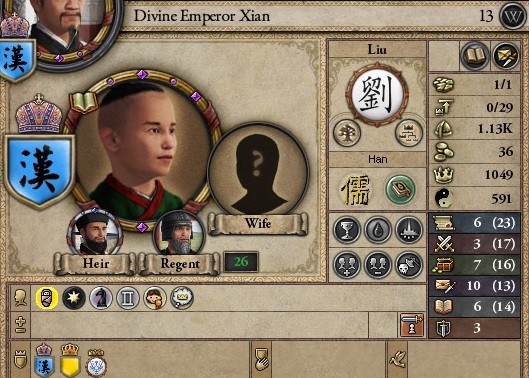
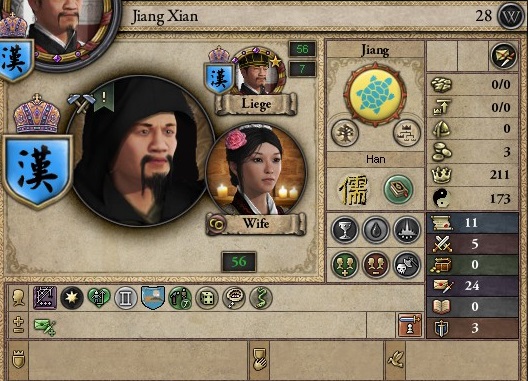
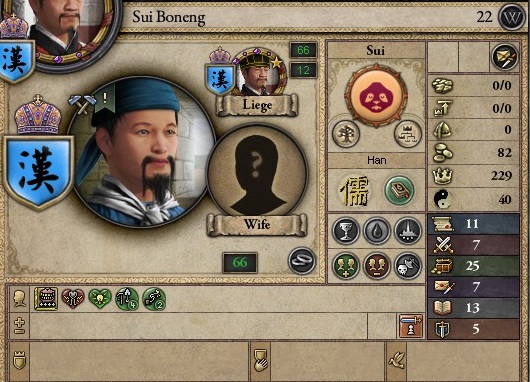
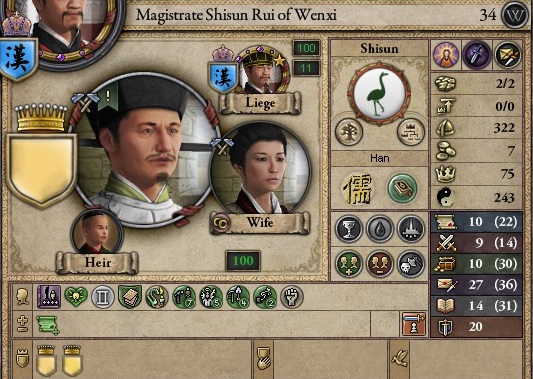
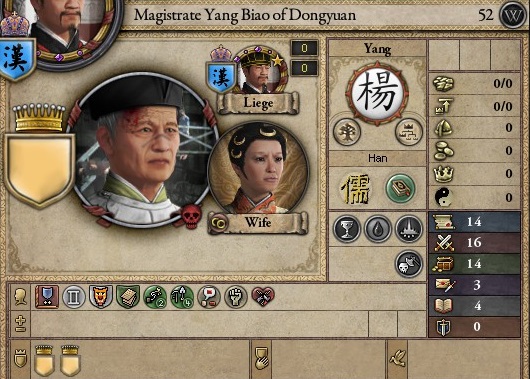
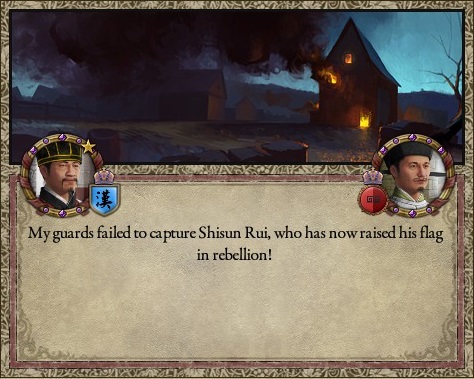

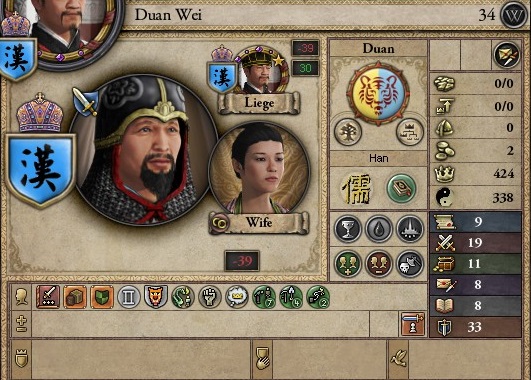


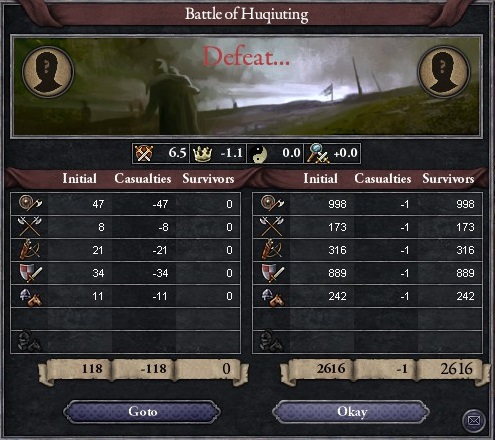
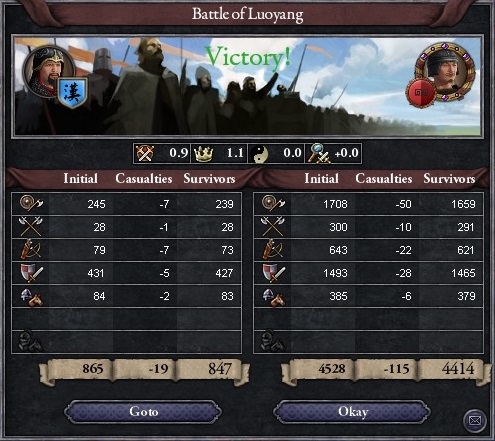

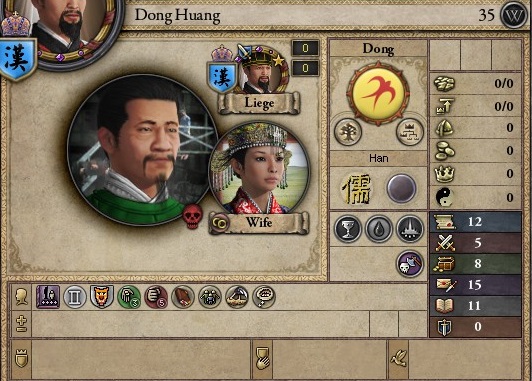
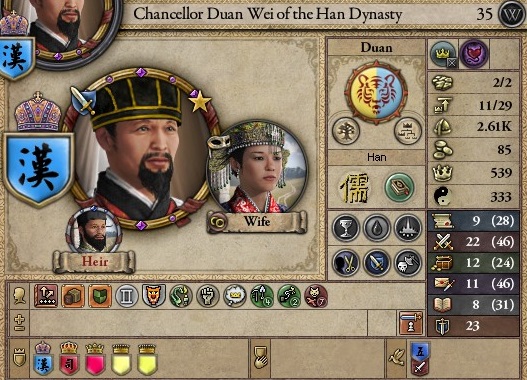


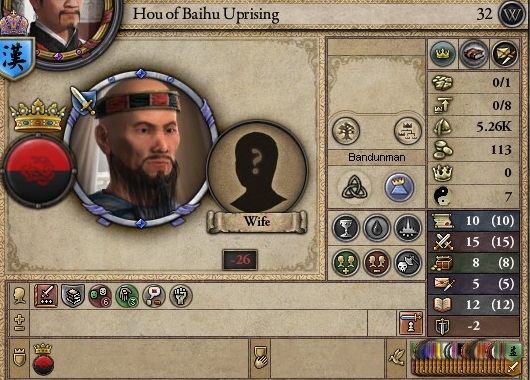

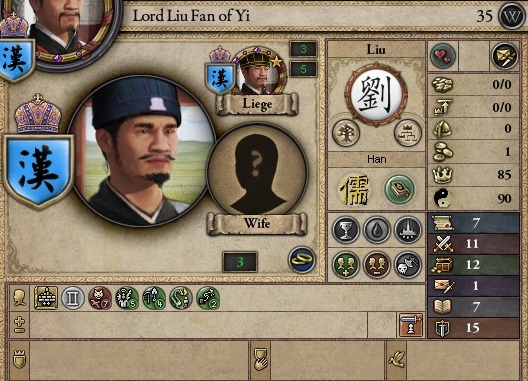
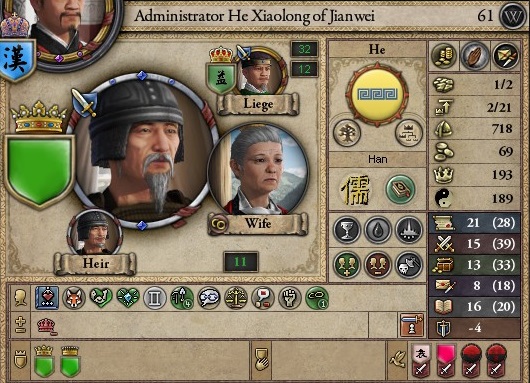
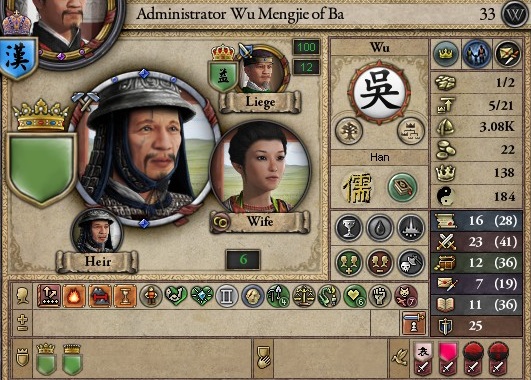
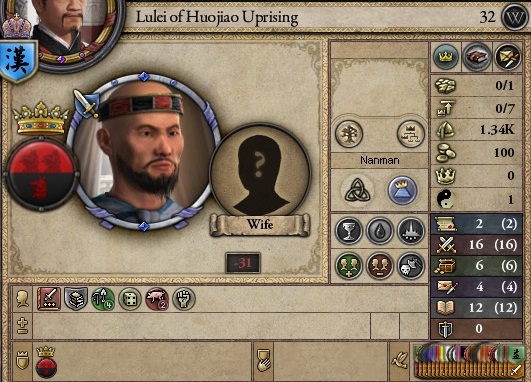
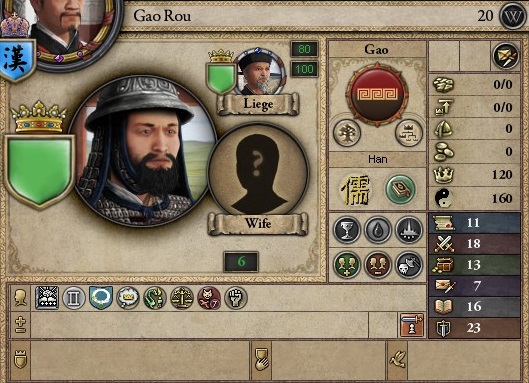
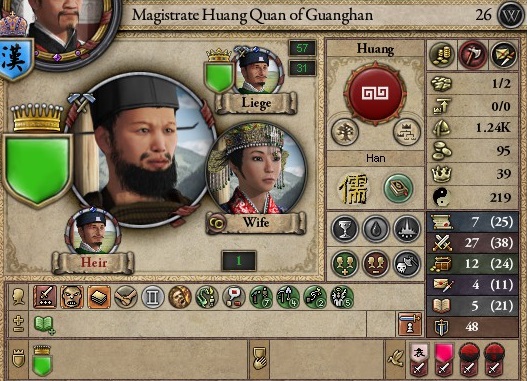

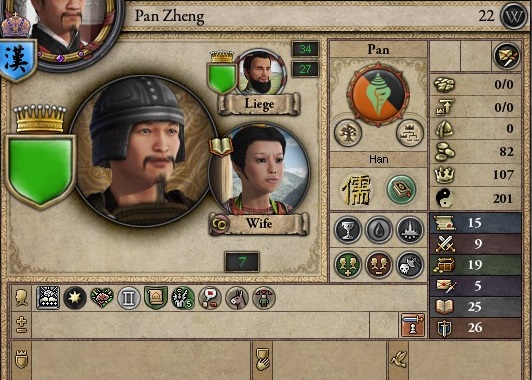


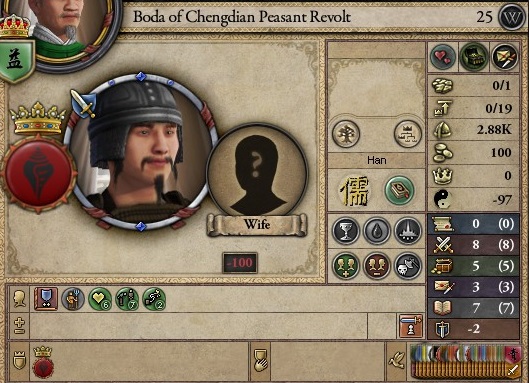
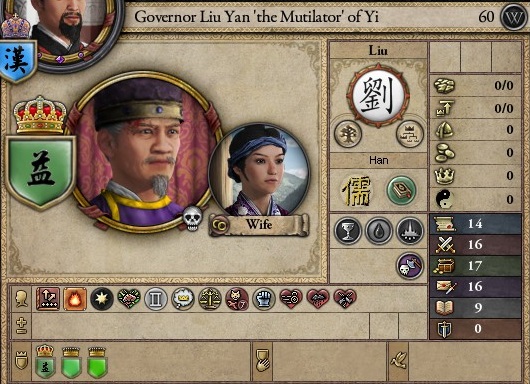

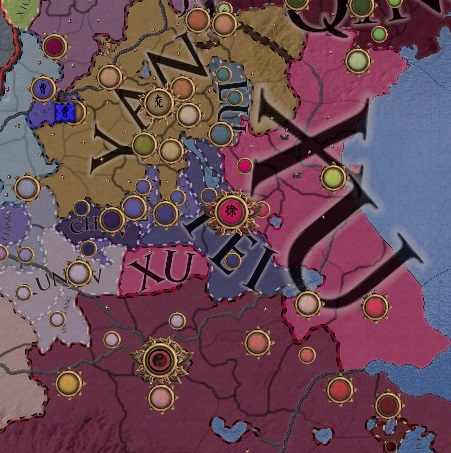


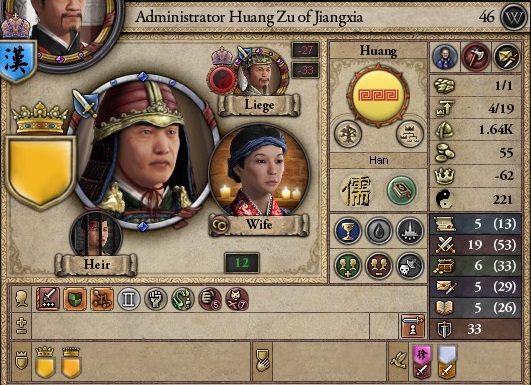
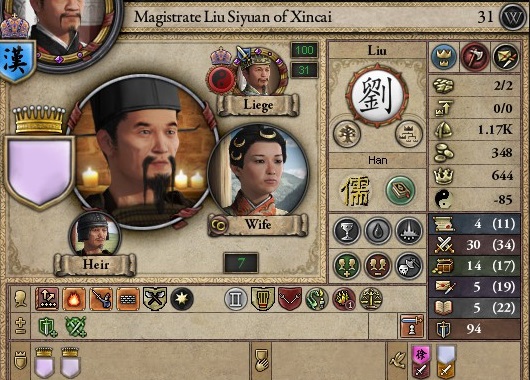

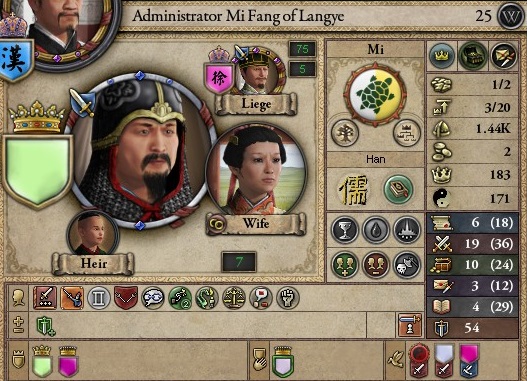



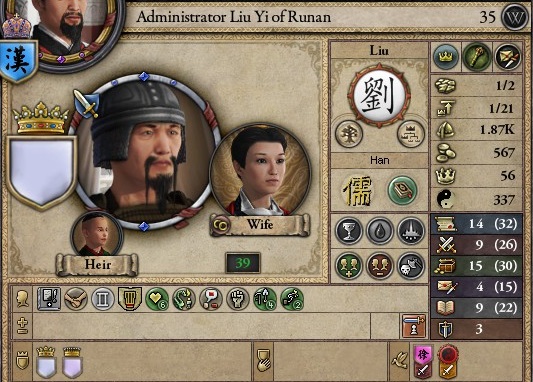
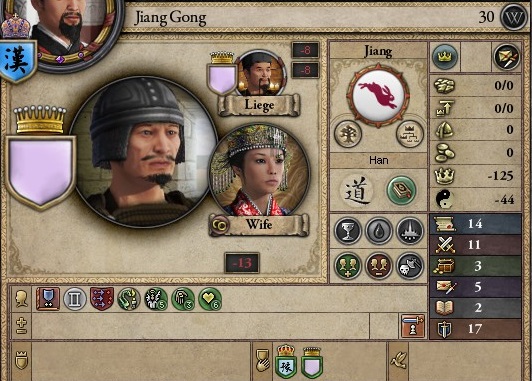
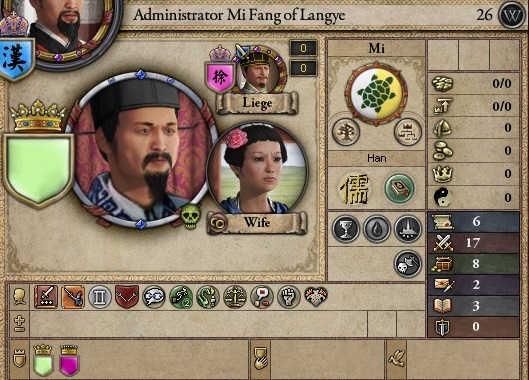
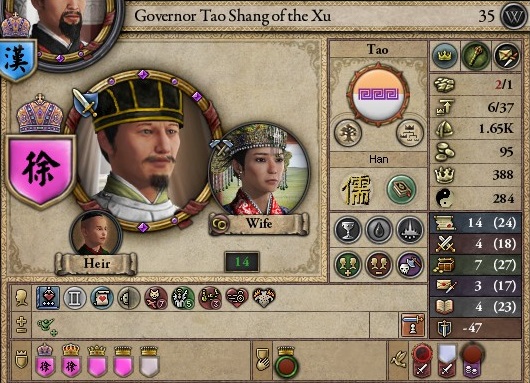

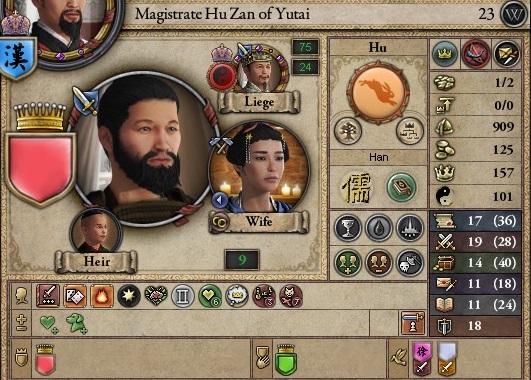

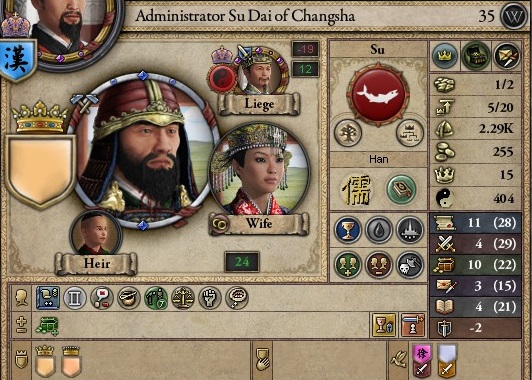
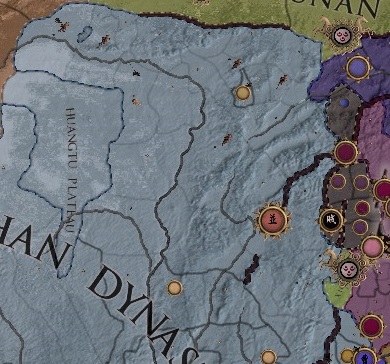
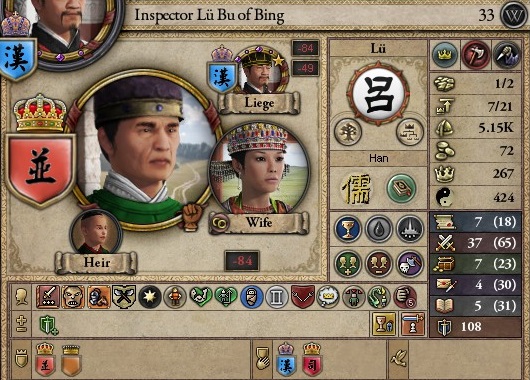
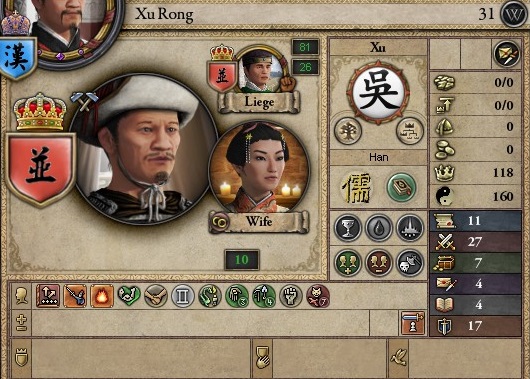
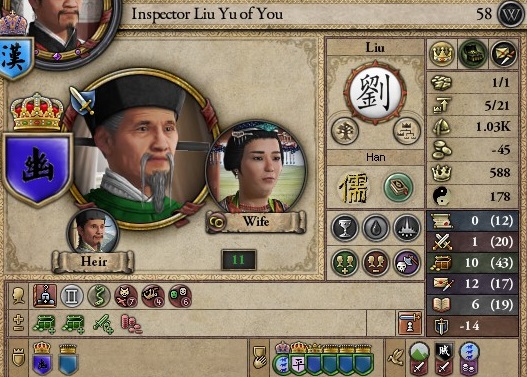
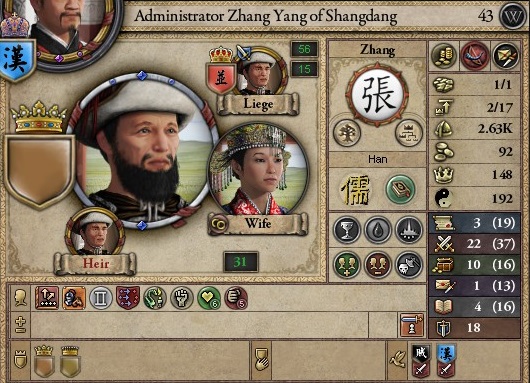
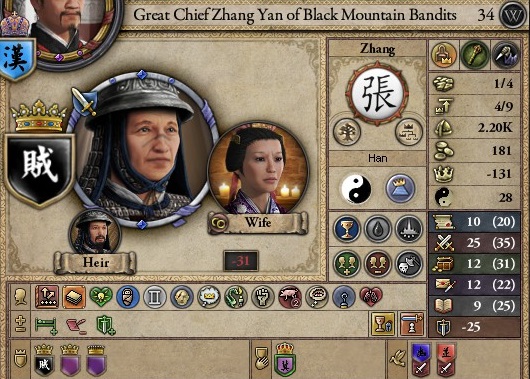
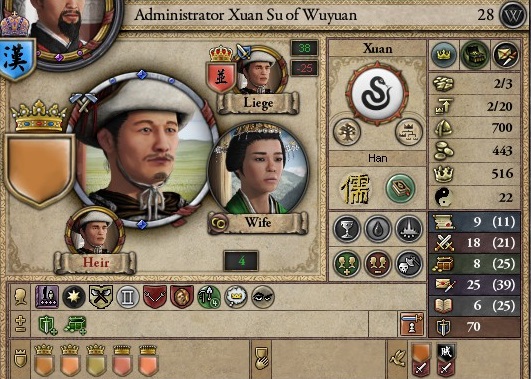
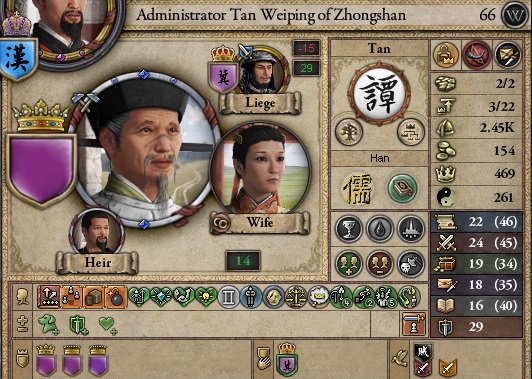
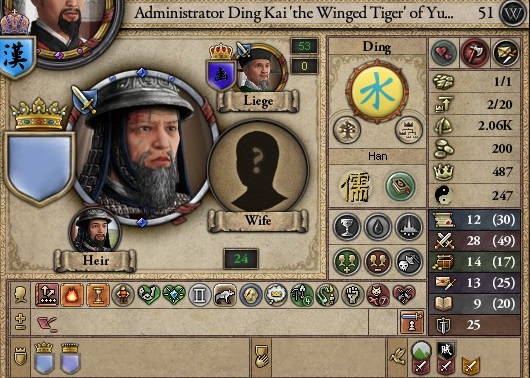
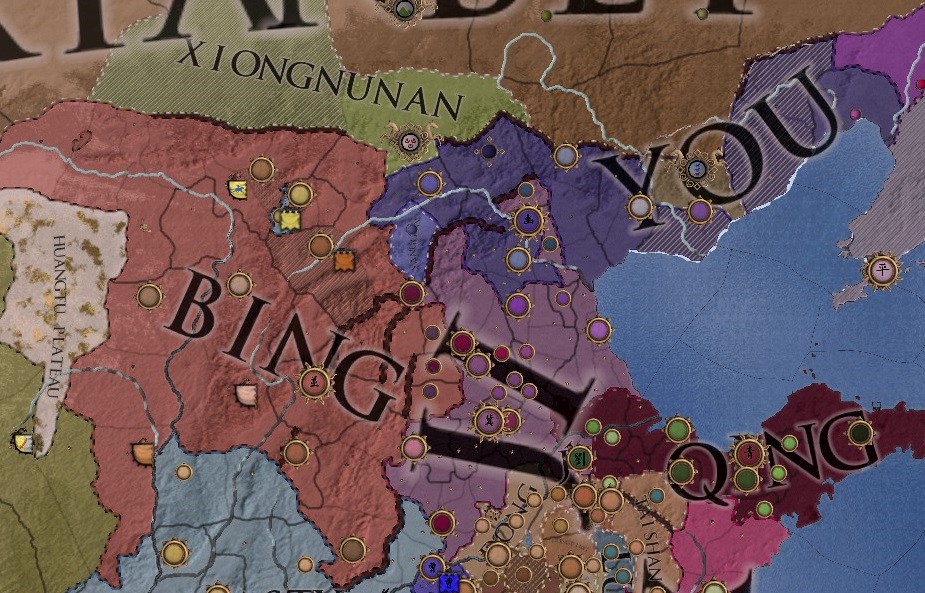



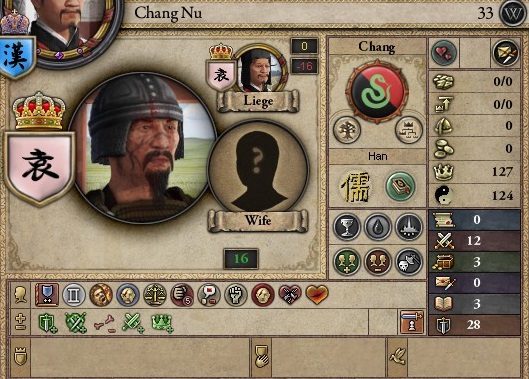





.jpg)











